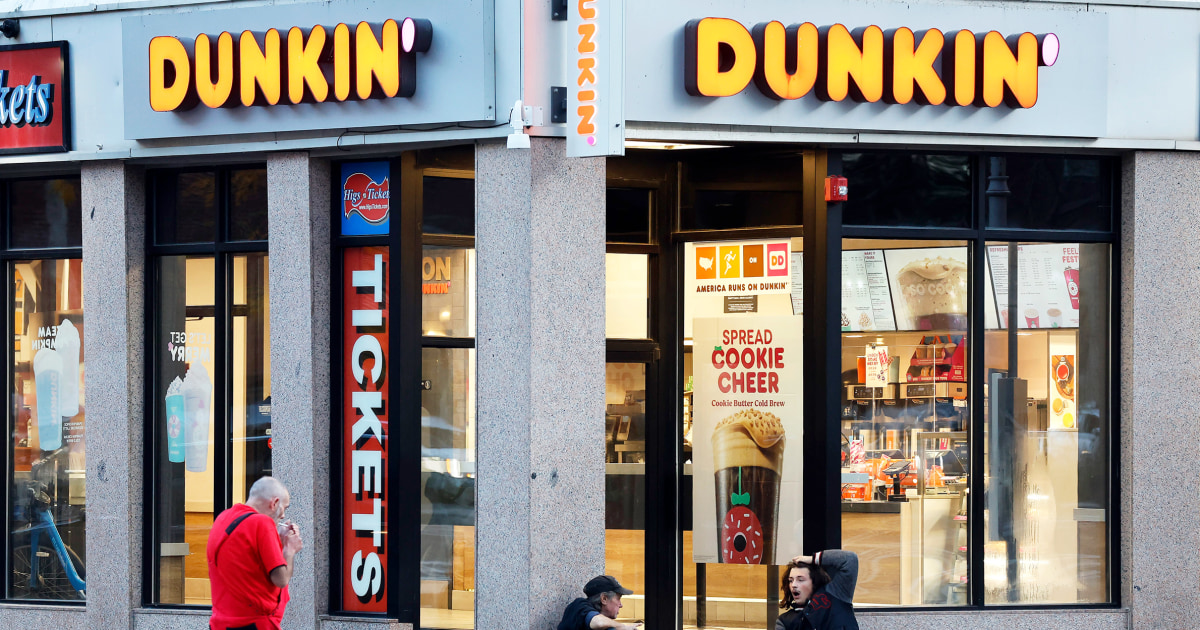Customers who are lactose-intolerant or have milk allergies may pay $2 extra at Dunkin’ Donuts when substituting oat or almond milk for dairy in their beverages. That’s discrimination, according to a class-action lawsuit filed last month.
“Being able to drink milk is a choice for some people, but it’s not for others. Lactose intolerance is a disability under the Americans with Disabilities Act, as amended,” said Bogdan Enica, an attorney representing the 10 plaintiffs named in the legal complaint.
The complaint, filed in a district court in Northern California, follows a similar class-action lawsuit Enica’s law firm filed against Starbucks in 2022. Enica said Starbucks filed a motion to dismiss the lawsuit, which is pending approval by the court.
Dunkin’ filed a waiver acknowledging the lawsuit Friday and has until March 4 to respond.
Starbucks and Dunkin’ Donuts could not be reached for comment.
The Americans with Disabilities Act (ADA) requires public entities to make “reasonable modifications” to their rules, policies or practices when they are necessary for individuals with disabilities to afford their goods, services, facilities, privileges or advantages — unless the entity can demonstrate that such modifications would fundamentally alter the nature of those goods, services, etc.
Arlene Kanter, the director of Syracuse University’s Disability Law and Policy program, believes the lawsuit makes a strong case for discrimination under the ADA.
“If a person qualifies as a person with a disability, and they’re entitled to an accommodation or modification —which in this case looks pretty simple as non-dairy milk — they cannot be charged extra,” said Kanter.
Allergies and intolerances can be a disability even if they don’t limit a major life activity or have a record of that disability, Kanter said. That’s because the ADA protects individuals who are subject to discrimination because they’re “regarded as disabled,” whether the impairment limits or is perceived to limit a major life activity.
The lawsuit against Dunkin’ points out that the chain already modifies its regular beverage offerings to remove caffeine and sugar at no additional cost for those with diabetes, weight-control issues or hypertension.
The coffee company also asks customers about their allergies, informing them that their products may contain allergens.
“Once Dunkin’ asks about allergies, and someone requests a dairy-free product, they can’t impose a surcharge — as they don’t for caffeine-free drinks, etc.,” Kanter said.
The lawsuit also includes claims under state disability discrimination laws where the plaintiffs are located, in Hawaii, California, New York, Texas, Massachusetts, and Colorado.
Chelsea Garland, a lactose-intolerant woman from San Diego, said she joined the lawsuit because she felt it was unjust that she had to pay more for a coffee that wouldn’t make her sick.
“The Dunkin’ surcharge for non-dairy milk directly affected me, and I believed it was wrong,” said Garland in a statement.
Enica said more than 50 other people who are lactose-intolerant or have milk allergies have contacted him hoping to join the legal filing against Dunkin’.
The lawsuit seeks damages amounting to no less than $5,000,000, which is the minimum amount that lawsuits need to seek to fall under the jurisdiction of a district court under the Class Action Fairness Act.
